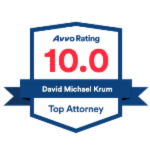Preliminary Hearings in Virginia
Experienced Attorneys Ready to Fight for You






Va. Code § § 19.2-218
In most cases, when a person is charged with a felony in Virginia, his or her case is set for a preliminary hearing in one of the district courts. Usually, the preliminary hearing is held in the General District Court. However, if the charge involves a family member or juvenile, the preliminary hearing will be held in the Juvenile and Domestic Relations Court.
The experienced criminal defense attorneys at KGO have litigated hundreds of preliminary hearings and successfully defended numerous clients charged with violent and nonviolent felonies.
Why is a preliminary hearing held?
Virginia Code § 19.2-218 requires a prosecutor to hold a preliminary hearing after someone has been arrested on a felony charge. A preliminary hearing must take place before the accused can be indicted (formally charged by the grand jury) for the crimes the police charged in the arrest warrant.
A preliminary hearing is not a trial. In Virginia, felony crimes are tried in the Circuit Court where you can choose to have a trial by jury. The preliminary hearing takes place well before a felony trial. However, the preliminary hearing is a very important part of a felony case and it is important to have a skilled and experienced criminal defense attorney represent you at this important stage of a criminal prosecution.
What happens at a preliminary hearing?
At the preliminary hearing, a district court judge must decide if the prosecutor has enough evidence to bring a felony case to trial. The judge also decides if the prosecutor has enough evidence to keep the accused under the control of the court – meaning in jail or under conditions of bond while.
The prosecutor has to show that probable cause exists that a felony was committed and that the accused committed the felony. Probable cause is a very low standard. Since it is not a trial, the prosecutor does not have to prove the accused guilty beyond a reasonable doubt at a preliminary hearing. Instead, the prosecutor simply has to show “that there is reasonable ground to believe that the crime has been committed and . . . the accused is the person who committed it.” Moore v. Commonwealth, 218 Va. 388, 391 (1977). Most of the time the prosecutor can reach probable cause with just the testimony of one or two witnesses. However, this means criminal defense attorney gets a chance to cross-examine those witnesses and challenge probable cause.
The preliminary hearing is the accused’s first opportunity to see and challenge the Commonwealth’s evidence in court. But, special rules apply to preliminary hearings. So, it is important to have an experienced and skilled defense attorney that can effectively cross-examine witnesses and challenge the Commonwealth’s evidence at the preliminary hearing. The criminal defense attorneys at KGO have many years of experience litigating preliminary hearing.
What are the possible outcomes of a preliminary hearing?
Under Virginia Code § 19.2-186, once all of the evidence is heard, the judge has three options:
If the judge believes that there is not sufficient cause for charging the accused with the felonies, the judge can dismiss the charges and discharge the accused. Discharge means the accused is released from jail or released from any conditions of bond;
If the judge believes that there is sufficient cause to charge the accused with a misdemeanor instead of a felony, then the judge can try the accused in district court for the misdemeanor;
If the judge believes that there is sufficient cause to charge the accused with the felony, then the judge will send the charge to Circuit Court for the indictment. The judge will also decide if the accused should be held in jail or release on bond.
What happens if a judge finds that there is not sufficient cause to charge a felony?
Under Virginia law, a prosecutor can still send your case to the grand jury for indictment if a district court judge finds there is not sufficient cause to charge a felony. This is called a direct indictment. If a prosecutor believes that they will not succeed at a preliminary hearing, they will often take a nolle prosequi – meaning they will abandon the prosecution in the district court but will still bring the case to the grand jury in the circuit court. That is why it is important to have an experienced criminal defense attorney that can work with the prosecutor to stress the weaknesses in the prosecutor’s case and reach the best outcome either by reaching the best possible plea deal, having the charges reduced or possibly having the charges dismissed at the preliminary hearing.
The Virginia criminal defense attorneys at KGO are experienced at using the preliminary hearing to your maximum advantage. An experienced and aggressive criminal attorney in Virginia will help to increase your chances of gaining a positive outcome at a preliminary hearing by reducing the felony charges to misdemeanors or having the charges dismissed completely. At KGO, we have the experience you need to fight and succeed in defending your Virginia felony in court.
KGO will fight for you.
An experienced and aggressive attorney can hone your defense and explore all feasible avenues to fight against a felony allegation. That means exploring all of the facts, speaking and bringing in witnesses, revealing when a witness is biased or has a reason to lie, and undermining the credibility of witnesses to a prosecutor, judge, or jury. It may also be important to prepare mitigating evidence to lessen the sentence or effect of any felony offense, with the goal of limiting criminal exposure or having the charge dismissed.
Virginia criminal attorneys Jonathan R. Oates and Kallie Crawford have successfully defended and represented hundreds of clients charged with violent and non-violent felony offenses in Virginia. Both Oates and Bourdon have helped many clients receive complete exonerations and not guilty verdicts of their charges in front of judges and juries. Each case was very different, requiring a unique strategy and outlook. Your case and your situation is no different. You need and deserve a top-rated defense. We can help.
Call +1 (703) 988-3711 or email us today to schedule a free consultation about your Virginia strangulation case and learn how we can help.


